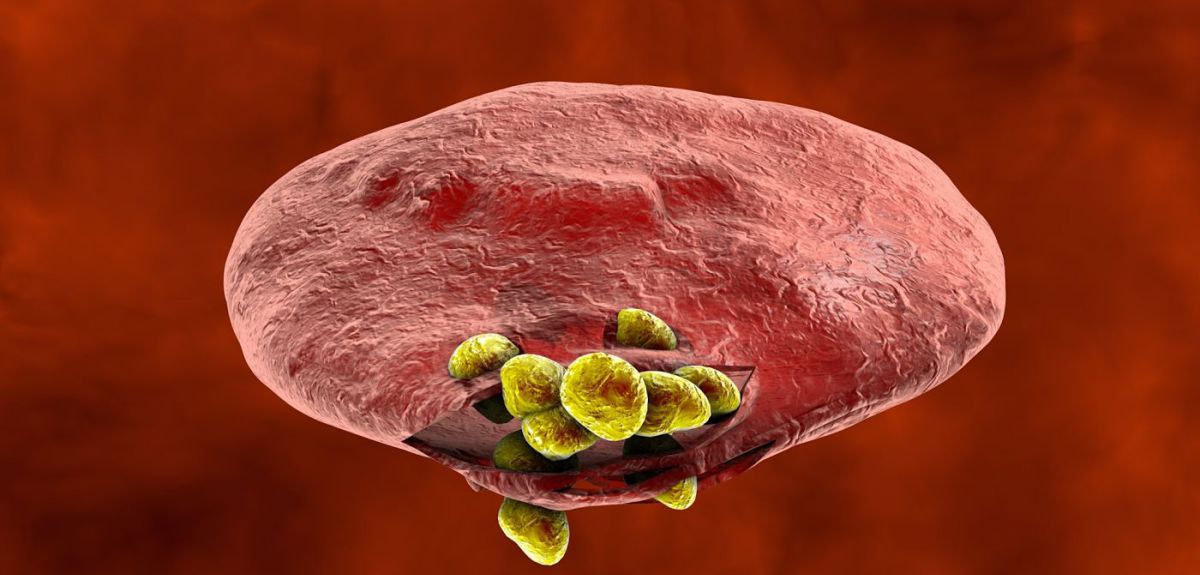Results from a long-term phase II study of the malaria vaccine RTS,S show that its efficacy falls over time, and that this decline is fastest in children living in areas with higher than average rates of malaria.
The findings, published in the New England Journal of Medicine, suggest that the benefits of the vaccine are likely to vary across different populations and highlight the need for more research to determine the most effective way of using RTS,S, which last year became the first ever malaria vaccine to receive a green light from the European Medicines Agency.
Overall our study shows that RTS,S can benefit children, but suggests that a fourth dose may be important for sustaining this protection over the long term, and to protect against a potential rebound.
Dr Ally Olotu, KEMRI-Wellcome and Nuffield Department of Medicine
Researchers at the KEMRI-Wellcome Trust Programme in Kilifi, Kenya, followed 447 children who had received three doses of either RTS,S or a rabies (control) vaccine when they were 5 to 17 months old. After seven years, there were 312 children still involved in the study. During the first year, the risk of getting malaria in the vaccinated children was 35.9% less than in the control group, but after seven years this protection fell to 4.4%.
In children exposed to the higher than average rates of malaria, there were slightly more cases of the disease (1002 cases) in the vaccinated group compared with the control group (992 cases) five years after vaccination. This ‘rebound’ effect is thought to occur because children protected by RTS,S develop their natural immunity against malaria more slowly than unvaccinated children, and has been seen in previous studies.
Results from a different, larger phase III study found that three doses of RTS,S reduced the risk of malaria in young children by 28% over four years, but this improved to 36% when children were given a fourth dose 18 months after the first dose. Longer-term follow up of these children is ongoing.
Senior author Professor Philip Bejon, Director of the KEMRI-Wellcome Trust research programme and Professor of Tropical Medicine at the University of Oxford, said: 'We found that three-dose vaccination with RTS,S was initially protective, but this was offset by a rebound in later years among children exposed to higher than average levels of malaria-carrying mosquitoes.
'While our results raise the possibility that being exposed to very high levels of malaria parasites may undo some of the benefits of RTS,S, our sample size was too small to draw any definitive conclusions about the long-term efficacy of the vaccine.'
Lead author Dr Ally Olotu, who completed the research while a PhD student at KEMRI-Wellcome, said: 'Overall our study shows that RTS,S can benefit children, but suggests that a fourth dose may be important for sustaining this protection over the long term, and to protect against a potential rebound.
'Results from three sites involved in the original phase III study that are continuing follow up, and the WHO's planned pilot programme, will tell us more about the vaccine’s efficacy in different settings and help determine which populations would benefit most from receiving it as part of a wider vaccination strategy.'
Acting KEMRI Director Gerald Mkoji said: 'The KEMRI-Wellcome Research Programme has a long-term commitment to vaccine research which is supported by its deep engagement with the community.'
Dr Mike Turner, Head of Infections at the Wellcome Trust, added: 'This research shows that there is real value in studying the impact of a vaccine over the long term to understand how protection can change over time.
'The results suggest that the implementation of RTS,S will need to be considered carefully and in a way that takes into account different levels of malaria exposure. RTS,S isn't perfect, but it still has the potential to save lives and will provide an important springboard for improved second generation vaccines that target multiple stages of the malaria parasite's lifecycle.'
According to the latest World Health Organisation (WHO) estimates more than 400,000 people died from malaria in 2015, with over 90% of these deaths occurring in sub-Saharan Africa. The vast majority who die are children under 5, and almost all cases are caused by the P. falciparum strain of malaria transmitted by female Anopheles mosquitoes.
RTS,S, which protects only against P. falciparum, was developed by GlaxoSmithKline with support from the PATH Malaria Vaccine Initiative (MVI) and with grant funds from the Bill & Melinda Gates Foundation to MVI. In July 2015, it received a positive opinion from the European Medicines Agency.
Earlier this year, the WHO recommended further evaluation of the four-dose regimen of RTS,S in a pilot implementation programme in sub-Saharan Africa, to address several knowledge gaps before the vaccine might be rolled out more widely.
